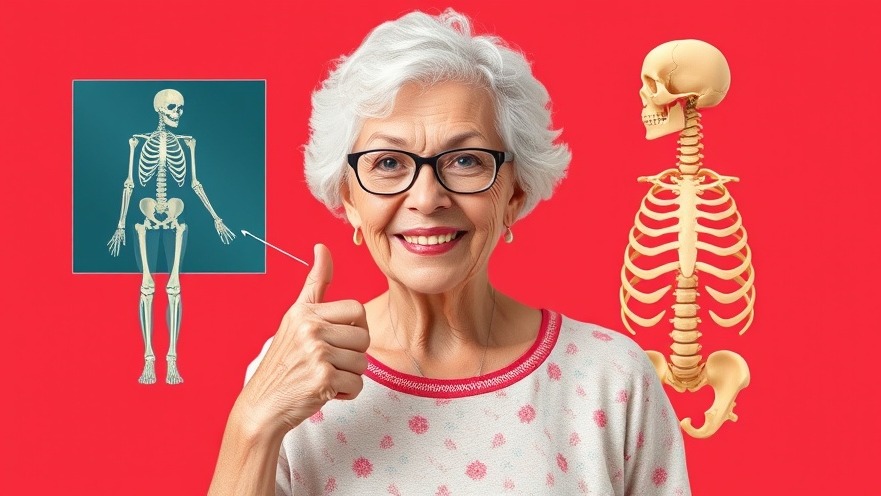
Understanding Your Bone Health After 60
The journey of aging is often intertwined with hidden health challenges. One such challenge is bone health, a topic that remains crucial yet frequently overlooked. In a revealing video titled "SENIORS, Your Bones WEAKEN Fast (Do this Before It's TOO LATE)", Barbara O'Neill dives deep into the alarming reality of diminishing bone density among seniors. The deterioration of bones is not just an unfortunate side effect of aging; it's a pressing concern that can severely impact mobility and quality of life.
In "SENIORS, Your Bones WEAKEN Fast (Do this Before It's TOO LATE)", Barbara O'Neill uncovers essential insights into bone health after 60, inspiring us to dive deeper into these critical topics.
The Silent Thief: Osteoporosis
Osteoporosis is often referred to as the 'silent thief' of bone health, gradually stealing strength without any warning signs. This deterioration starts as early as the 30s, but it is often not until the 60s that noticeable issues arise, such as discomfort during simple daily activities. Many of us equate strong bones with adequate calcium intake, but Barbara insists that the reality is much more complex. Bones rely on a balance of multiple minerals, not just calcium, making nutrition a cornerstone of bone health.
The Myths Around Calcium Supplements
For decades, seniors have been advised to consume calcium supplements as the main stay for strong bones. However, Barbara raises a compelling point: these supplements could inadvertently contribute to heart issues rather than protect bones. When the body lacks complementary nutrients to utilize that calcium effectively, it can lead to calcium accumulation in arteries, which is certainly not a desired outcome. The focus should shift from solely calcium to a more holistic approach involving vitamins and minerals that work synergistically for optimal bone health.
The Real Bone Protectors
We often overlook three critical nutrients crucial for bone strength: vitamin K2, vitamin D3, and magnesium. Vitamin K2 directs calcium to bones while keeping it away from arteries, acting as a traffic conductor; Vitamin D3 ensures that calcium is absorbed efficiently in our bodies; Magnesium unlocks the full potential of vitamin D3. This nutrient trio not only promotes healthier bones but also aids in muscle strength and overall vitality.
Practical Nutrition for Stronger Bones
Knowing which foods support bone health can help seniors make informed dietary choices. Emphasizing greens, fish, nuts, and healthy fats can provide the essential nutrients to combat bone deterioration. Bone broth, for example, is a fantastic source of collagen that improves flexibility and resilience. Additionally, engaging with colorful, mineral-rich vegetables can be a delightful way to incorporate necessary nutrients.
Movement Matters: The Role of Exercise
Beyond nutrition, physical activity is indispensable to maintaining strong bones. As highlighted in the video, movement stimulates bone growth and keeps the skeletal system robust. Simple exercises, including brisk walking, strength training, and balance workouts like Tai Chi, can significantly enhance bone density and overall health.
Taking Control of Your Bone Health Today
Arming yourself with the knowledge of how to improve bone health is empowering. By addressing nutritional gaps and incorporating movement, seniors can reclaim their independence and reduce the risk of fractures. Start by evaluating your current diet and exercise regimen.
As Barbara O'Neill illustrated, it's not just about living longer but living stronger. Small steps today can yield substantial benefits for years to come. So, what will your first change be? Perhaps adding more greens to your meals or starting a daily walking routine? The journey to stronger bones begins with a single step.
 Add Row
Add Row  Add
Add 




 Add Row
Add Row  Add
Add 

Write A Comment